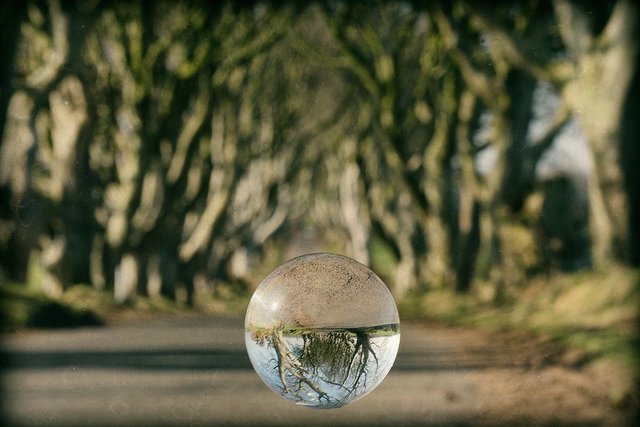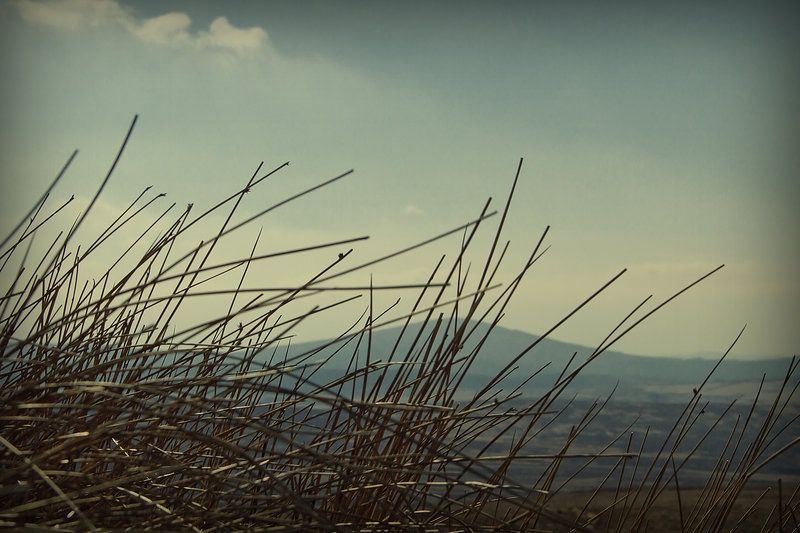The Philosophy of Poetics #1: Obfuscation
The Philosophy of Poetics
#1: Obfuscation

.jpg)
Introduction
.jpg)
Welcome to a new series digging into the dynamics of poetical expression! This is obviously a highly subjective area and I will be speaking mostly through the lens of my personal approach to writing (which is constantly evolving and is influenced by countless other artists!) I hope it will spark discussion and be an impetus for inspiration. (Shout out to @nainaztengra for motivating me to write on this topic. Also, indirectly, @dbooster.) By the way, the viewpoints presented here will often run contrary to the "traditional" consensus about poetry. Anyone and everyone is free to disagree with me and I welcome you to bring your own experience and perspective forth!

.jpg)
Obfuscation in Poetic Expression
.jpg)
What is obfuscation? It is the action of deliberately making something obscure or veiled. Why would this be desirable? Isn't the point of writing to communicate clearly and simply? The answer, as with all things, is yes and no. Good writing (and especially poetry) is a balance of simplicity with intricacy, clarity with obscurity. I chose to begin with this topic, because although it is not the most fundamental aspect of poetics, it is an area I find most would-be poets deficient in. That is, they express themselves too directly! (in my view)
.jpg)
Lack of Education,
Discouragement of Innovation
.jpg)
I cannot speak for other cultures, but in my experience, there is very little value put on poetry in the American school system. By this I refer to learning how to write poetry as distinguished from learning to read, understand, and appreciate it. Most English teachers, not themselves poets, are distinctly unqualified to teach it, and it is not considered an important part of a modern education. But this is an area to explore in more depth another day so I will not tarry here, the point is that the vast majority are programmed to think in terms of writing prose, not poetics. Even in the context of creative writing, there is a great emphasis put on linearity and mundane expression. The teacher quickly slaps the wrists of the student who expresses themself too abstractly, or God Forbid, creates new words & grammatical structures! Subconciously, we are taught that good writing is to sound like everybody else.
.jpg)
Why Is Obfuscation A Powerful Tool?
.jpg)

Generally, the best way to demonstrate a point of view is to provide examples. So let us improvise a short stanza that is dull, insipid and prosaic and see how it can be improved by obscuring it. Let's also see if we can obscure it so far that it is now too vague and incomprehensible, so we can see the middle ground.
Version 1: Heartbreak
For so many long years
She was the apple of my eye.
Losing her was total agony
That caused to weep the sky.
Yaaaaaawwn. Although this comes from an authentic deep feeling, it is expressed in a manner so predictable using overdone cliches that it does little to stimulate interest or emotion in the reader. What would happen if we replaced each phrase with a slightly more unusual expression of a similar idea?
"For so many long years" can become, say, "Through the winding grove of days & nights." This is still pretty basic but a bit more interesting. "She was the apple of my eye" can transform into "My nectarous love & I."
"Losing her was total agony" can be changed to "Subsumed by bliss, too soon estranged." This is less dramatic, but shows greater depth of feeling. "That caused to weep the sky" is a very generic image, that of rain being likened to tears. It's one of the most overused metaphors of all time! Let's change it to the slightly more uncommon "On furthest wing did fly." I'm trying to keep this version pretty basic still. We end up with:
Version 2: Nostalgia
Through the winding grove of days & nights
My nectarous love & I.
Subsumed by bliss, too soon estranged,
On furthest wing did fly.
What I hope you can see from this version is that in some ways it is better, in some ways worse than the original version. It has become a bit weakened and vague, yet also potentially stronger in its impact. I see this as the "no man's land" between total genericism and a powerful abstraction. It is ok, but nothing special. This is what causes many poets to give up and to prefer simple no-nonsense expression. They do not go far enough to enjoy the fruits of abstraction! Now, what if we stop trying to preserve the original images and instead produce something bizarre and surprising that still holds the original deep feeling of heartbreak?
Version 3: Expanse
At affection's exorbitant pinnacle
Bathing in the warm hues of sunrise,
Transfixed, ravished by the glorious sky-fire
So ruinous, I was slain by sheets of colored glass
That fractalized the firmament with the ominous tones
Of a cosmic lyre barelling comet-like through time.
Well, this is quite different than the first or second! Why did it get more lengthy? Because as the expression is more indirect, it required a bit more elaboration to convey the feeling. Note that some people will hate this version and think it is pretentious! Writing is quite personal, and some people loathe abstraction, seeing it as both unnecessary and unenjoyable. Others will get teary-eyed reading this kind of verse!
A few more notes about this version: notice that there is no mention of "She" or "my love." It only speaks of "affection", being "transfixed" by something "glorious." Also there is no mention of the emotion of agony or despair, but it is implied with the strong descriptors "ruinous" and "ominous" along with the verbs "ravished, slain" and to a lesser degree (more subtle) "fractalized, barrelling." Also the imagery in this version is quite different; we left behind the portrait of an orchard, apple, grove, etc. and instead focus on comparing the experience of love to being on some elevated peak, near to the sky, on which we are brutally murdered by our experience of heartbreak, along with the firmament itself! This version turned out pretty dramatic.
But now it's time for yet another version, even more abstract:
Version 4: Absurdity
Jade nightingale screaming proliferation's virtue,
Amber snake eyes of the galaxy, their
Hypnotic gyrations gleaming ecstasy.
Mermaid confabulation of an ivory typhoon,
The calm in the saline chaos of neogenesis
Punctured by coronary explosions of
Sorrow embalmed in a tigerseye statue.
Hahaha... at this point, can you tell what this is about? It is still a poem of heartbreak! Instead of separating the experiences of bliss and agony, beauty and desolation, they are hopelessly intertwined in a paradoxical and bizzare expression. Also notice there is no longer any mention of an I or a Her, it has become strangely impersonal and more cosmic in scope. There is an unspoken implication that we are all intertwined in the odd scene. We also see that some of the emotion may be lost in translation, and the reader's feeling may end up confused rather than aroused. However, they may experience some interesting sensations reading it and find it intriguing. The may even read it several times to attempt to unveil its mysteries. Through the obfuscation, they may experience some insights or be stimulated to ponder the nature of reality, language or self. Or they may just end up frustrated and annoyed!
.jpg)
What is the Intention
behind this Technique?
.jpg)
The purpose of obfuscation is not to write something bizarre for the sake of being bizarre. The purpose is to evoke deeper feeling and energy in the reader, as well as to experience greater catharsis as the writer. Why would a more abstract expression be more cathartic for us as writers? Because if we are able to express something painful, profound, or joyous in a new way, it broadens our ability to enjoy and appreciate the many experiences life brings. It enables us to go beyond our narrow perceptions of good and bad, pleasant and unpleasant by seeing how deeply these elements are intermixed. Writing then becomes a powerful medicine for transformation instead of a mechanical means of expressing stagnation. It also becomes inspiring, massive, breathtaking: it shows the potential limitlessness of our being. It is the grand affirmation of creativity and uniqueness that stimulates healing and gratitude through our exciting journey through existence.
.jpg)
Conclusion
.jpg)
.jpg)
I could continue on, but I want this to be a brief introduction into the technique without getting too technical or bogged down in the details. I also want to mention that the most natural way to use this concept is to write directly into the final version, not to modify an existing simple stanza as I did here. That was done only for example purposes. It could prove a useful exercise for those who feel uncomfortable with employing abstraction in their poetic pieces, however.
Now, it's your turn! Please weigh in! Did you learn something from this article? Was it too confusing? What could I do better in these lessons? Which was your favorite version of the example verse? Do you use or enjoy obfuscation in poetics or do you find it unnecessary and irritating?
Thank you very much for reading, as always I am so grateful for the constant love and support of the Steemit community. Have an awesome day!!

Written by
@d-pend
11/11/17
.
Photography by
SneachtaPix
1 - "River by the Church"2 - "Dark Hedges"
3 - "The Artist's Retreat"
4 - "Autumn Sentry"
5 - "Obfuscation"
5 - "Glenairiff Falls"

Thank you @d-pend! This post is exactly what I was discussing with @josie2214 yesterday at our round table. I expressed my lack of ability to create poems and how stiff and completely different way they go if you try to rhyme them than what you intended in the beginning. Maybe I just don't know how. Yet.
I agree completely that many write too directly. I prefer more cryptic and abstract poetry that leaves me wondering what it is about.
This was so useful. Thank you! :)
Great I am so glad it was helpful for you!! I definitely think "Yet" is the keyword in your statement. In my experience all it takes is lots of practice, the right intentions (write for the sake of writing, the pure enjoyment of it, the therapeutic benefits to process your existence, etc.) and plenty of experimentation with different approaches and styles to begin to discover your unique poetic voice. Anyone can do it!!! Don't be intimidated or too judge yourself too harshly.
I, too, felt the same way, and just spontaneously began to write about 7 years ago. I never had a teacher or mentor for my poetry, though I had a close friend who loved to write as a hobby and we would share back and forth. I even quit writing poetry totally for about 2 or 3 years after I had been doing it daily for a long time because I thought my style was mediocre (and also because I started to become overwhelmed by the strong feelings that it invoked in me!)
Poetry is a reflection of heart spontaneity, the energy that sends signals to our deep transcendence. The only real energy - emotional poetry is the one that is spontaneous, which comes in an unorthodox and abstract rhythm, everything else is usually writing. -
Excellent post, totally justified and understandable. Thans @d-pend
Yes indeed my friend,
you are riding the cosmic wave
of feeling and rapidity of spin.
Thanks for this amazing and useful post
Now I think I understand your poetry better! Yes, I really didn't know anything about obfuscation. To be honest, I like the 2nd version because I don't have to think/work it out, but really the 3rd version is really much better for all the reasons you point out. Like I said earlier, you now have shown me how I should be reading/interpreting when I read your poetry. My mathematical brain will take some training to read these poems! You are a great teacher and have a true way with words!
First of all thank you very much Daniel for mentioning me, its very gracious of you.
Well I am looking forward to these series, If i am not wrong I will see glimpses of William Shakespeare in your work.
I do love Poetry but I am not at all creative on this part, so will be eagerly waiting to read your work. And I completely agree with you on this point--
"Subconsciously, we are taught that good writing is to sound like everybody else."
Do you also have a knack on Limericks? I enjoy that a lot
I love the idea for this series, I think you are a great teacher and have a lots of insights to share keep up the good work!
Good written
Good define poetry
Good job! Thanks to @violetmed you have planted 0.13 tree to save Abongphen Highland Forest in Cameroon. Help me to plant 1,000,000 trees and share my Steem Power to the others. Selfvoting is prohibited, but that should be the reason to spread the world to protect our precious environment. Check out profile of our conservation association @kedjom-keku and the founder/coordinator @martin.mikes to get more information about our conservation program. My current SP is 14290.93. Help me to plant more trees with your delegated SP.
Thanks a lot,
your @treeplanter
www.kedjom-keku.com
oh! nice picture,
I vote, reply and follow you .. please vote, reply and follow me .